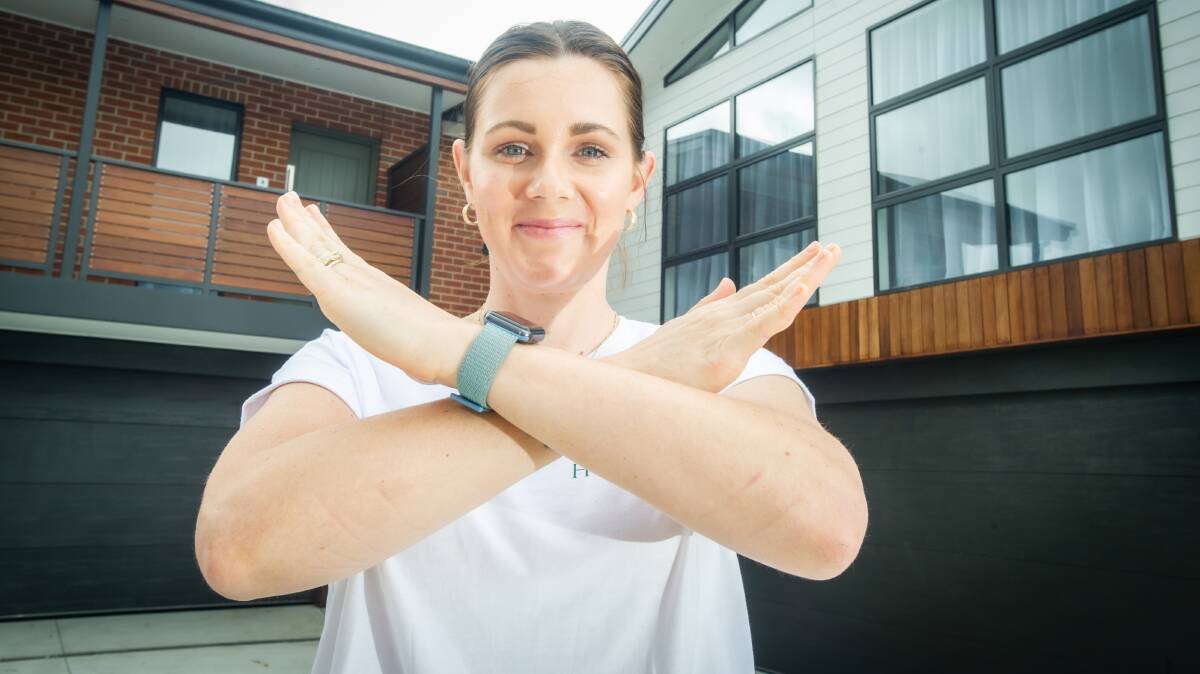
As a woman, it's near impossible for stereotypes and biases not to impact everyday life.
Whether they're small impacts or large ones, they're always there. This is why this year's International Women's Day - March 8 - is centred around the theme Break the Bias.
Here are six Canberra women who are doing just that.
Carly Dewey
When you think of stereotypical "masculine" jobs, it's hard to go past the construction industry. Of course, there is no such thing as a job only fit for men, but that doesn't mean that when women such as Carly Dewey rock up on a construction site, they don't feel the impacts of that stereotype.
Dewey is behind She Builds Homes, a company that both designs and builds homes ready for sale and does renovation work for clients.
And despite her 11 years of experience, she says it can be hard to be taken seriously.
"I'll be carrying something on site and the guys will be like, 'No - don't carry that. Or like yesterday, we were doing demolition in the bathroom, and I'm using the little jackhammer and doing all this stuff, and there's so much hesitation to have women holding the tools and doing that physical labour," Dewey says.
"You've got to have a lot of confidence to walk into a building site and just know that you do belong. It's not a culture that is designed for women at the moment.
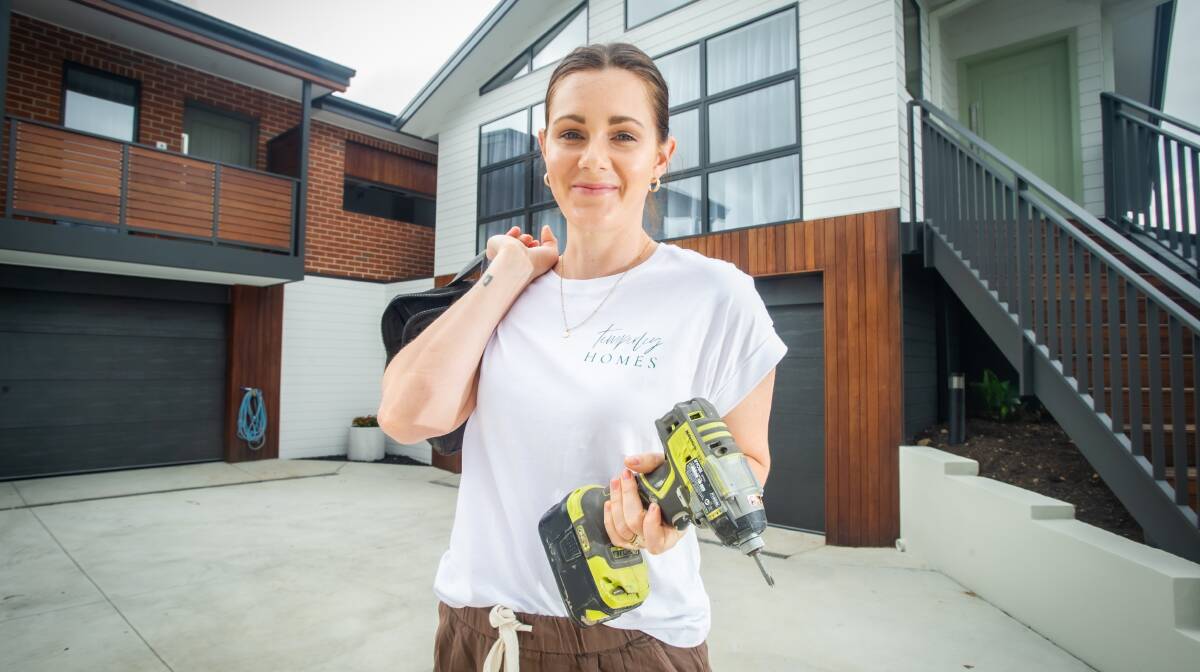
"There's a huge societal shift that needs to happen. It's a different world in the construction industry. People say it's changing, but it's not. It's really difficult for women. It's a real boys club, on the building sites."
According to the Australian Bureau of Statistics, in 2019-20 women made up only 12.7 per cent of the construction industry, a figure that is the result of a decrease in women in trades. In 2006, the industry was made up of 17 per cent women.
Meanwhile, an RMIT report, Women in Construction: Exploring the Barriers and Supportive Enablers of Wellbeing in the Workplace, found that 95 per cent of women in construction thought they were treated differently by men because of their gender, and 60 per cent felt that they faced inappropriate and challenging behaviour in their workplace.
It's because of this culture Dewey has to pick and choose who she works with.
"If I'm working with someone new, or even suppliers, a lot of the time, I don't get the time of day. They don't take me seriously," she says.
"If I'm going to employ their services on one of my job sites and we're not meshing, I won't work with them. Because if they can't follow my direction, then it's just not going to work.
"It's a challenge but I don't mind being challenged but I think that's probably why I stick around."
Olivia Thornton
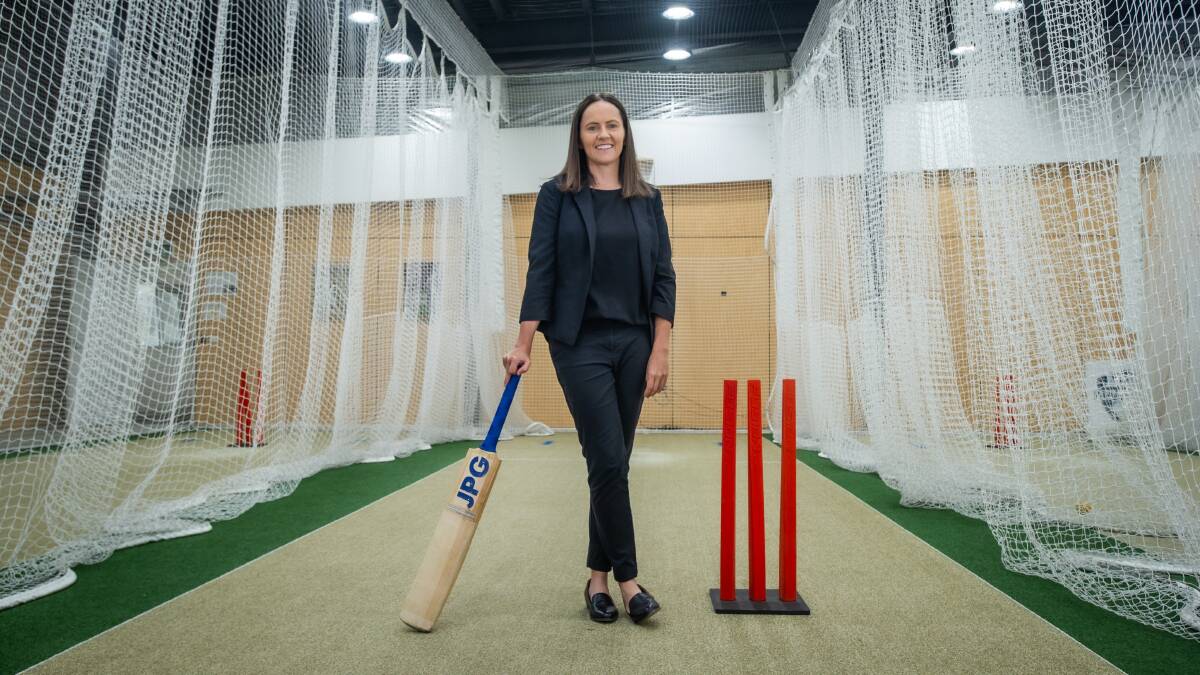
Olivia Thornton may be the first woman to take up the role of chief executive of Cricket ACT but she's here to make sure that she is not the last.
The Cricket ACT boss - and only woman to be chief executive of any major sporting association in Canberra - officially stepped into the role last year. Despite the short timeframe, she is already making strides in creating a supportive environment for people of all genders to succeed.
"I've got an opportunity now in this role to help other young men and women progress in their careers. There are some things that we have been conscious about in terms of ensuring that we've got a flexible workplace," Thornton says.
"For example, we've got mums here who we know have a large role to play at home, so we're working out how can our workplace work in, around, and with them ... and we get that balance right."
Thornton has been involved with cricket for almost 30 years. In that time she has seen the sport, and in particular, the involvement of women, grow.
For example, recent years have seen the number of female junior players has seen growth at more than 100 per cent. And at a professional level, the women's team now earns a salary that is enough to live off - something which 10 years ago was not an opportunity.
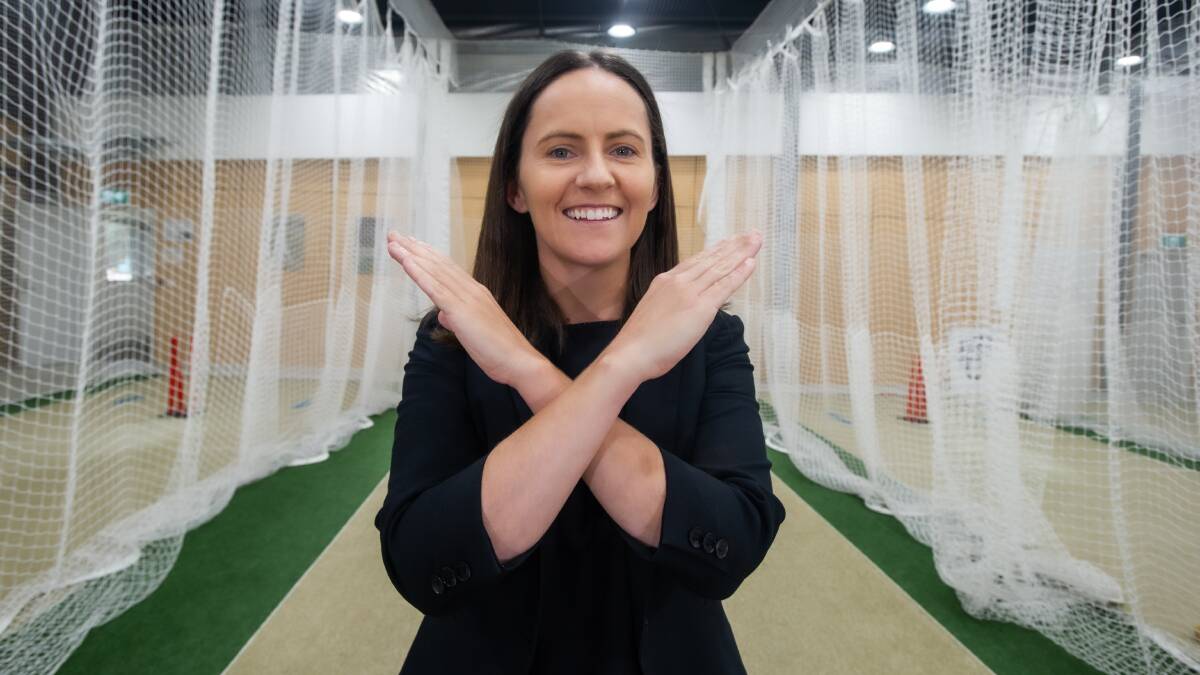
"Do we still have work to do? One-hundred per cent. But we are tracking in the right direction, and it's really important for women to hold key roles in organisations," Thornton says.
"We talk about diversity - and gender is one lens of diversity, there are many other lenses, and some of those need to continue to be addressed - but I think it's really important because there is that notion of you can't be what you can't see.
"And having a greater female representation around the decision-making table, there's research out there that suggests that gender diversity helps from a company performance perspective, around greater productivity and greater profitability."
Jenni Atkinson
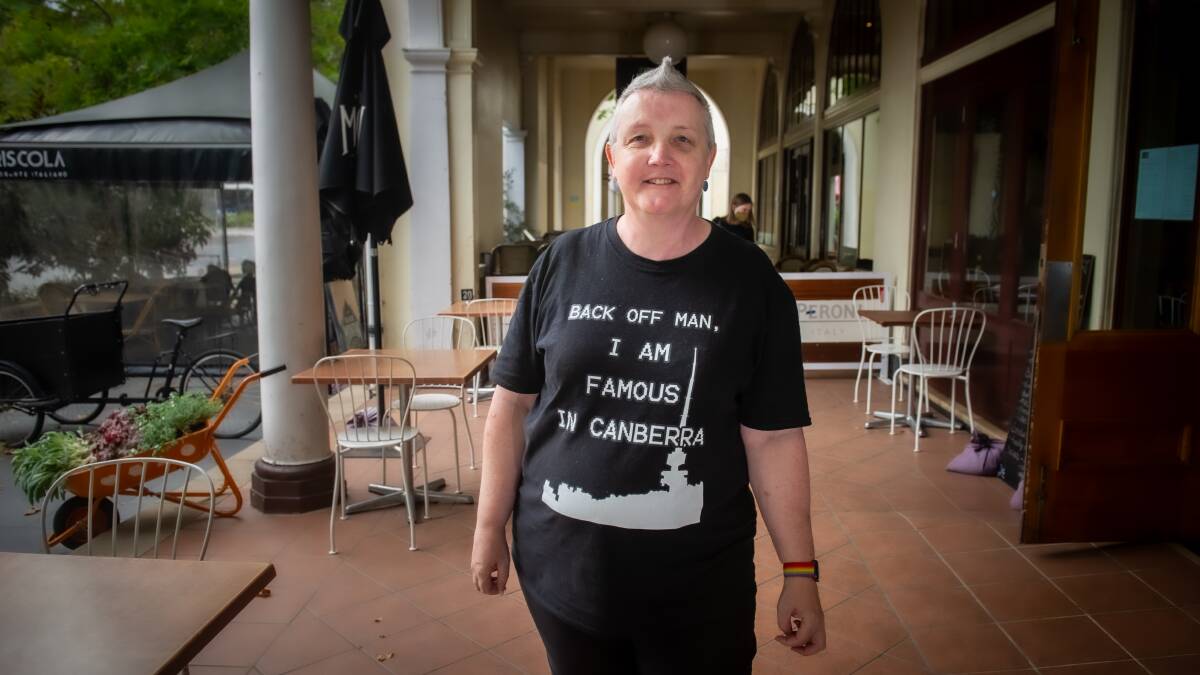
When Jenni Atkinson asks herself what it means to help break the bias, the answer is both complicated and simple.
At the heart of it, breaking the bias is about living authentically. But for Atkinson, this also means not being grounded by anti-transgender and anti-queer forces. It's supporting their queer sisters, brothers and others. It's doing outreach work and building a diverse community. And it's even dressing and acting how they want to.
Atkinson is an out and proud non-binary, trans woman. For them it's been a journey that started from birth, but they only started becoming aware of it at 29.
"I obviously came to my identity in a slightly different way to how a lot of women do. For the first 29 years of my life, I thought I was a straight male but I was wrong," Atkinson says.
"This was 1991 in Brisbane, Queensland in the days before the internet. So I read books at the library, and I discovered with growing horror, that I was what was called in those days, a transsexual. This is now a somewhat archaic term, and for many has been replaced with the term transgender.
"After my initial horror and revulsion of this discovery, that this is what I truly am, something clicked in my brain and I realised that this is me, this is my authentic truth, and I'd better get on with living my life the best way I could."
Yes, Atkinson came to their womanhood in a different way to other women, but they were also born this way. Being trans was never a choice.
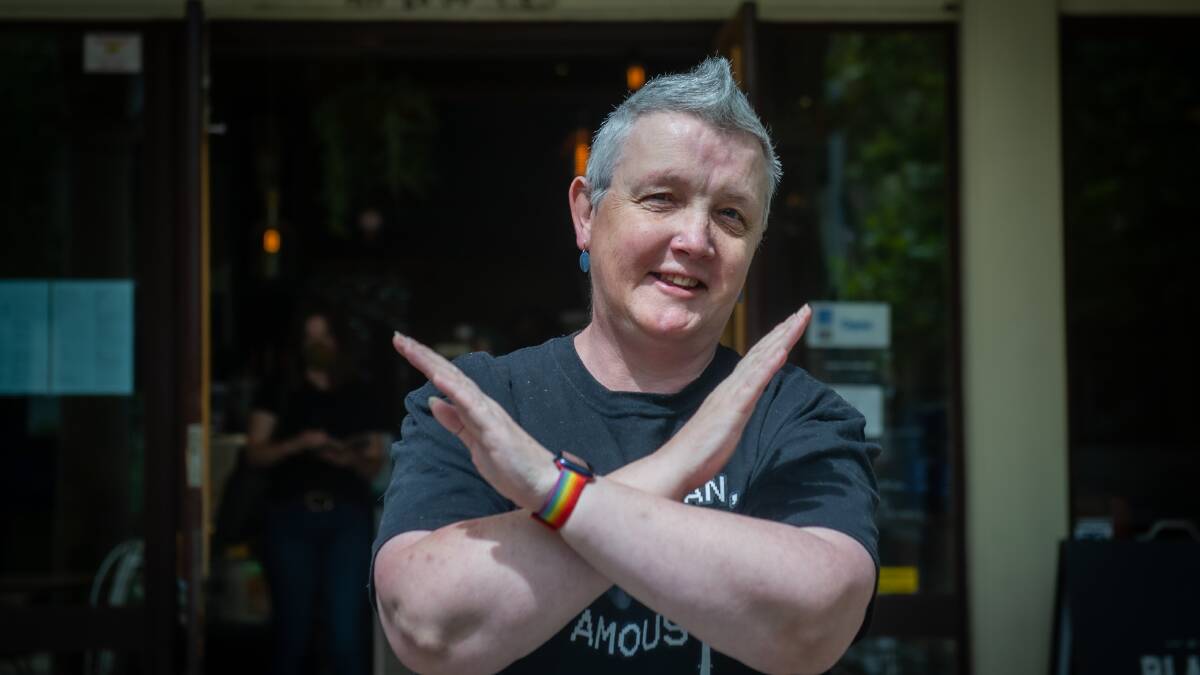
But being trans, unfortunately, has come with a stigma. It's part of the reason why Atkinson founded TranzAustralia, an advocacy group for trans, non-binary and intersex people.
With both a YouTube and a Facebook presence, the group aims to reach and support people across the country - particularly in rural areas - who are on their trans and gender diverse journey, as well as providing education packs at locations across Canberra.
It's activist work such as this that Atkinson hopes will improve the acceptance of trans and gender diverse people in the wider community. It's an acceptance, however, that Atkinson doesn't always receive in her own everyday life.
"I'm very lucky that I'm working with the Federal Health Department, and they have a fantastic queer network within there. But it wasn't quite the same at some other departments," they say.
"I have worked in some of the harder departments and it's a different vibe. Perhaps there isn't the same amount of acceptance.
"I think sometimes it gets to be a bit too much for people. And in the past, I've had contracts dry up on me ... and then I've found out later that they've hired somebody else in to do the work that I was doing, whereas I was told that the work had run out. So things like that are still happening, even in the 21st century, which is sad."
Linda Berjoui
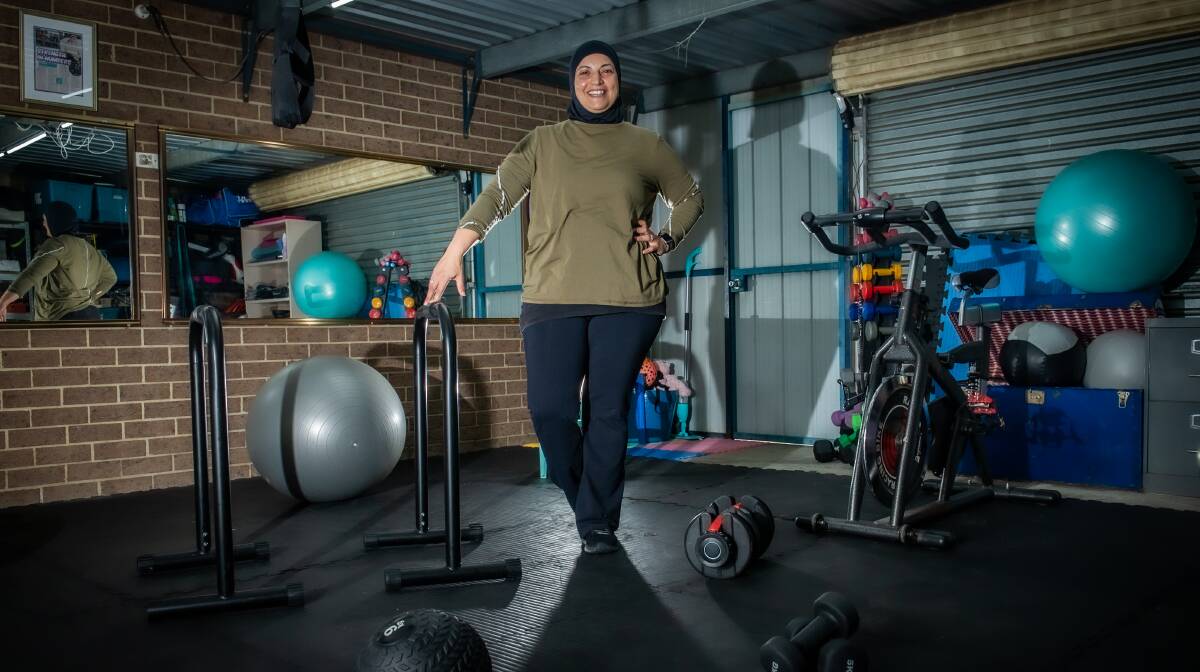
Linda Berjoui has always enjoyed exercising, but it was only after she had her fifth child that she started to consider a career in personal training.
But not just any personal trainer. Berjoui is the woman behind Sista PT, Canberra's only gym aimed at giving women, in particular Muslim women, a safe place to train.
"One of the main reasons why I wanted to mainly become a personal trainer was to help not only mums but Muslim women in my community who probably have never been inside a gym before because they're scared or they're not taught to do that," she says.
"I wanted to have a safe space for them to come to me and try to get fit and healthy. It's just a safe space that I try to offer to ladies who want to get fit, but just don't know what to do or how to go about it.
"It is very intimidating going into gyms and those anxieties can stop you from getting out and being healthy. It's nice to be able to eliminate a little bit of those anxieties so that being able to get fit and healthy is not such a huge challenge. And it's a relief to many who are just starting or have never been inside a gym before."

The Isabella Plains resident runs the business out of her garage, offering both one-on-one sessions and small group classes, as well as free, weekly community sessions, in the hopes of breaking down the stereotype of who can and cannot exercise at a gym.
And in the process, she's also breaking down the stereotype of who can and cannot be a personal trainer.
"I'm sure there are some other Muslim women out there who are also personal trainers. I think I may know of maybe one other Muslim lady in Canberra that is also a personal trainer," she says.
"It's not very common. It's weird that it's just not something that Muslim women look into.
"But that's why I'm trying to get more Muslim people into fitness. I don't know if it's scary, or what. I'm not sure why there aren't many Muslim women doing this. I'm trying to break that mould and say that fitness can be for everyone. I'm just trying to make it seem normal."
Jo Cameron and Linda Champion

When it comes to the Australian Federal Police, diversity can be key to gaining an advantage when fighting crime, according to commander investigations Jo Cameron and commander operations Linda Champion.
The duo - who have been in the police force since they were young adults - says that diversity of all kinds can benefit the entire team as it brings in different perspectives.
But despite the advantage it brings to the job at hand, some in the wider public still see the police force as a male-dominated field. As it stands, the AFP, according to its website, is made up of 38 per cent women.
"I think perhaps what keeps women away from the police force is maybe just the myth [that it's not for women], which we're all trying to dispel because it's a great career," Cameron says.
"The police service is meant to be a reflection of the community and the more diversity we have in our workforce, the better policing service we can offer our community."
For Champion, there was only ever one career for her. She says she locked in on the idea of becoming a police officer as a teenager and after a few years of gaining some real-life experience, Champion entered the service at 19.
And despite this being more than three decades ago, she says she never thought twice about the gender imbalance within the profession.

"I didn't consider it a hindrance that it was a male-dominated police force," Champion says.
"Having said that, once I joined, you do see that was the case back then. We were lucky to have 20 per cent females on my course - that was six females, five of which are still in it today, which is a phenomenal effort given it's been 34 years.
"I think what we did collectively was that we were there for each other and then as time went on, we were there for other women when they were facing challenges that we went through throughout our careers."
More than three decades later she and Cameron are in a position to help promote the police service as a career option for anyone - no matter their gender or background.
It's not only about getting people to consider the profession but getting them to stay on the career path by creating an environment that everyone can thrive in.
"We're very conscious that we reach out to all sectors of the community to bring that diversity," Cameron says.
"Sometimes this means targeting recruitment campaigns towards young women to come and explore what options or what might be available to them. It's about getting the message out there and dispelling those myths.
"Linda and I are now in a role where we can have a choice over those structures that sit in the organisation so that we can lower those barriers, and make sure that the really strong ratios that we have are continued right through from constable up to commissioner."







